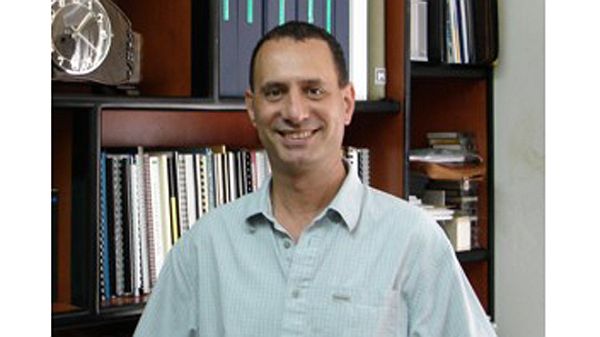Washington, D.C. - As a young boy in Mexico, Lorenzo Juárez spent every Sunday watching Jacques Cousteau. He dreamed of the day that he would explore the ocean to intimately know undersea life. Those desires have landed him in the middle of a multi-billion industry that's at the center of a stormy debate between environmental activists and fishing industry lobbyists.
Juárez is deputy director of the National Oceanic and Atmospheric Administration’s aquaculture office, which sets the environmental and safety standards for farm fishing. The practice, depending on whom you talk to, can feed the world or destroy it.
 |
Aquaculture – a fancy term for fish farms – is basically a cash cow. Half the world’s demand for seafood is fed by farm-raised seafood and more than 85 percent of the shrimp, salmon, tilapia, and shellfish consumed in the US comes from other countries. Ultimately, the US shells out more than $10 billion for this food.
Industry analysts say part of the reason the US has not been a key player in the global grab at this lucrative food producing sector is that NOAA has stringent and costly permitting procedures that drive business to other countries.
"The writing is out there. We need aquaculture to continue to develop but also keeping the environment in mind always," said Juárez, whose work history in the industry extends throughout the Americas and includes setting up the first shrimp hatchery in the Dominican Republic. "It’s a balance."
Whether that balance can be sustained or not will be seen through efforts in the gulf coast, where a government plan to expand farming in federal waters is in the works. This proposal is heralded as a great advancement that can open up a lucrative market that will help feed the world, and disparaged as an environmental catastrophe in the making that may hurt local industry and sacrifice the wild fish population.
Activists argue the practice of farming fish is an environmental hazard that can introduce disease and pollution to the wildlife population. Farmed seafood can be raised in segregated areas of rivers, streams, and oceans and if they escape they can compete with wildlife for resources.
"Most aquaculture globally is really problematic and not sustainable," said John Hocevar, the ocean campaign director for Greenpeace. "NOAA is in a position to take a role in leading the world in the industry and to do it right, not just in the US."
And that is what Juárez – whose primary responsibilities include day-to-day functions including handling the program’s budget – and the rest of the NOAA team are aiming to accomplish. Their goal is to keep standards in place enabling the industry to expand. In his mind, there just isn’t any way to avoid aquaculture; and that means they aren’t going to avoid the controversy surrounding it.
"All issues are not straight forward," explained Juárez, who as past president of the World Aquaculture Society knows this better than most. "I think everybody’s side needs to be heard and taken into account... you come up with a better outcome that way."
Juárez, who admired the French explorer Jacques Cousteau growing up, couldn’t have dreamed of a better career outcome for himself – one in which he can follow his passion for the sea while feeding people.
"From a philosophical point, I think it’s a very good thing for humanity," said Juárez explaining why he is so passionate about aquaculture and how it is that he has been involved in the industry for nearly 30 years. "It’s needed and an absolute requirement if we are going to feed the 9 billion people the world is going to have by 2050."
And for the Latino community, having Juárez at the center of what is such a controversial topic is essential.
"It’s nice to see Latinos in non-traditional positions guarding us," said Angelo Falcón, president of the National Institute for Latino Policy. "His position is really interesting because it deals with an issue that affects all Americans in a fundamental way – the food supply in terms of fish. We should be paying more attention to Lorenzo and what he’s doing to protect us.


